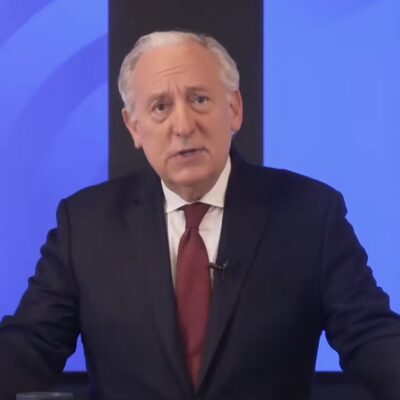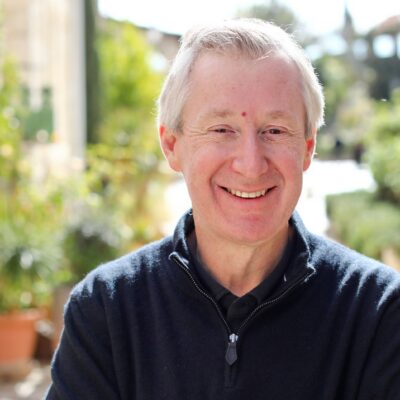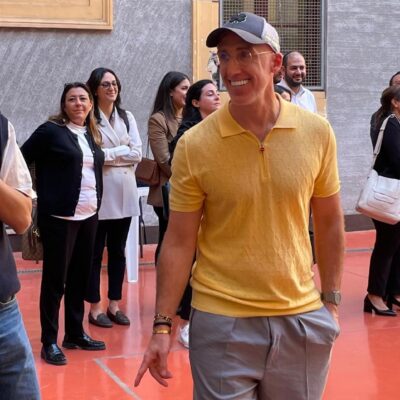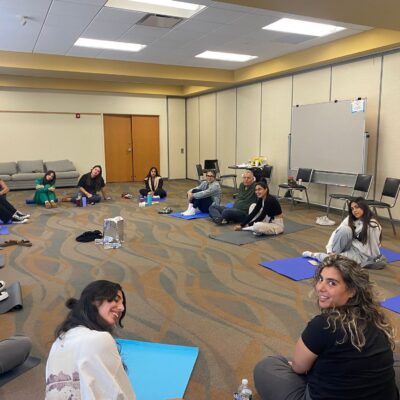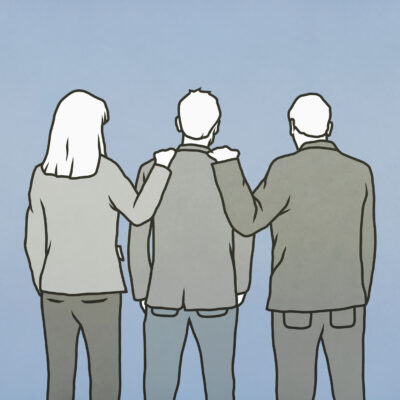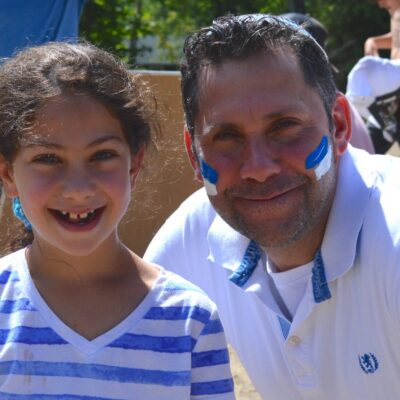Opinion
‘Something has broken’: Teachers in Israel are straining to provide stability and support for their students
“We lived our whole life with the belief that we were protected. And now suddenly, something has broken. But I have to minimize the trauma for my students,” a first grade teacher in the southern Israeli city of Ashkelon explained to us, her words highlighting the essential role of teachers when everything falls apart.
I am a professor of education at Brandeis University, and for three weeks after Oct. 7, I worked alongside Harvard Graduate School of Education alumna Tal Eitan and local Israeli educator Smadar Yitzhaki to interview as many teachers in Israel as we could. Due to ongoing rocket attacks, some of these teachers had not left their homes except to purchase essentials; others were relocated, along with all of their students; and a portion were able to return to their school buildings. We spoke to more than 40 teachers of all grades and from all geographic areas in the country, capturing their experience teaching in the first weeks after the attack.
This research, generously supported by the Office of the President at Brandeis University, is critical to understanding both Israel and the craft of teaching.
In the field of educational research, there has been a growing focus on education in emergencies. Studying educators in a crisis helps us to understand the fundamental role of education and teachers as part of the fabric of society. The Hamas attack of Oct. 7 thrust this multiethnic country of 9 million into crisis. Children in Israel, of all faiths and backgrounds, were left with missing parents. Schools were left without educators and principals. As we interviewed more and more teachers, whether they taught first grade or 12th grade, in the south or in the central areas of the country, a commonality emerged: they are desperately, determinedly striving to create shigra, routine, for their students.
As one teacher explained it to me:
“Although I am not risking my life, I feel like we are soldiers. We are part of the war effort. Some people for homes, some for land, some with air cover. We are fighting for human souls. I love math, but we don’t care about math right now. Our goal is that when this is over, the trauma is as small as possible. That’s what we are doing here.”
Another teacher put it this way:
“At the end of the day, all the fears and all the concerns of the kids and the parents are on me. I get it. I have to absorb. I’m not their friend. I’m there to support them.”
Finally, a third teacher:
“The most important thing for me is mental health and classroom community. Nothing else matters… Understanding the war? I don’t understand the war. I have no way to explain to them what’s happening. I worry about the students. I worry about what will emerge in the coming years. Right now, we are in the middle of the trauma… How will we live? I don’t know. But I am here to minimize trauma for my students.”
These sentiments were expressed across the 40 teachers we spoke to. All of them saw their role as playing the reassuring, confident, routine-protecting adult in their students’ lives. This echoes findings among teachers in Ukraine during the ongoing conflict.
Of course, it is not easy to have to be the face of routine in this context. Teachers are also human, and this war is happening to them as well. Their routine has also been shattered. As one teacher I spoke to explained:
“I think that there is an expectation for educators in these situations to create a routine, and it is an expectation that is a bit unrealistic. Before we are educators we are people. We also do not have a routine at the moment, and we also have friends in the reserves or friends who have lost their lives, or if we are talking about COVID-19, sick family members, hospitalized family members, things like that. And if I don’t have a routine as a person, I can’t create a routine for the children, so somewhere in situations like this, we need to lower the expectation a little bit from educators and see them as citizens of the country before they are teachers.”
This feeling reflects reality. Research on the teacher experience during COVID-19, conducted here in America and published in July by the American Educational Research Association, finds that “narratives of self-care for educators in the midst of pandemic teaching are a form of gaslighting… That is, it is not the system’s fault that, for example, there are not enough resources for all students and that virtual teaching of kindergarteners is nearly impossible, but it’s the teacher’s own fault for not being able to cope with it. This gaslighting minimizes (and, in some cases, denies) the strong emotions of burnout and demoralization and the mental health struggles that teachers had during the pandemic.”
The teachers we spoke to offered tremendous insights into how they are doing their work despite the challenges:
1.) In an era of standardization and scripting of teaching and curricula, you must trust yourself. You are the expert on your classroom and your students and you know whether your students need routine right now defined by traditional content or routine defined by new learning related to the war.
“It happened to me, unfortunately, that a student asked me how it is that babies are killed,” one teacher said. “Killing children? Kidnappers?” I told her, “Sweet girl, come let’s learn math. Right now I’m pushing a math routine with all my might, not just a routine of going to school and being together but being together and learning math.” Another teacher, however, said she knew her students need to talk about the attack: “Right now we are in the midst of mourning, we are in national mourning. It’s a very hard situation, very mentally draining.”
Teachers we spoke to were clear: trust your expertise as a teacher to know what your students need.
2.) Expect that curricula and lessons will be refracted through the current reality. This is inevitable. Embrace it. One teacher shared how it was impossible for her lesson plans not to change, even staying within the curriculum. Her example is particularly poignant, but this sentiment reappeared in many of the interviews we conducted.
“There is a short story I teach by S.Y. Agnon. A work I have been teaching for years and it is one of my favorite stories, and one of the highlights of the story is that the reader discovers that the hero did not just come back, but he returns to find the doors of his house locked. Then the reader discovers that he did not just come back from some vacation, he returned from captivity. Then I do a whole lesson on captivity, on how to accept a person who returns from captivity, what joy there is here. But how can I talk about such a thing today… It’s designed as a lesson that is a fictional account. To talk about hostages today… what happens in the story, this is really nothing compared to what we experience today.”
This teacher accepted that her lessons could not and would not be the same. This is an additional challenge to teaching right now, but her advice was to embrace it and not avoid it.
3.) When it feels like nothing is being accomplished in class, remember that just showing up every day to teach is already an accomplished lesson in resilience and faith in the future.
“I find strength in routine, preparing lessons,” a teacher said, echoed by others as well. “To wake up in the morning and not the afternoon, to need to get dressed and presentable. Even on Zoom, the students see. To sign in, to go on Zoom, to see if the students are also on Zoom, to check if they are okay, for them to know that you are okay.”
These teachers’ difficult accounts of teaching in this moment reminds us of the essential role teachers play, not only as educators, but as adults in children’s lives. Therein lies the true heroism of education right now: that it mitigates the effect of conflict on children. Schooling, even on Zoom, can provide children with the critical sense of normalcy in otherwise disruptive and fearful settings. School provides children with a structured and stable routine. In mitigating trauma, teachers again emerge, as they always have, as societies’ heroes.
Ziva Hassenfeld is a professor of Jewish education at Brandeis University.

 Add EJP on Google
Add EJP on Google